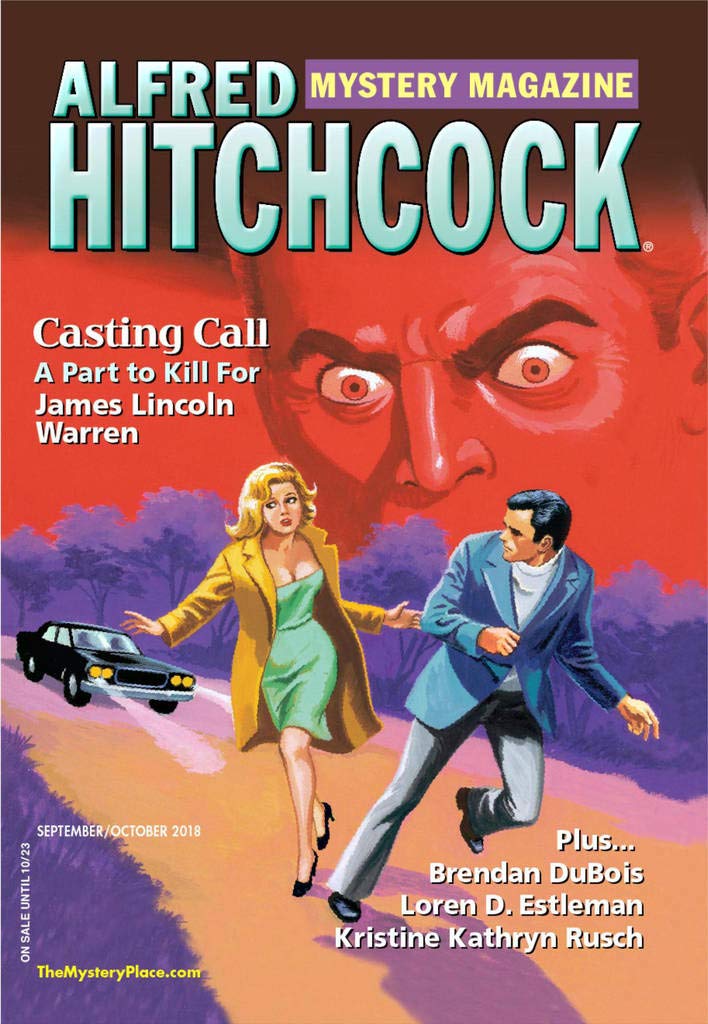This was a tough week, since Hitchcock featured stories by two of my favorite writers about two wonderful series characters. Mitch Aldeman's Bubba Simms stories and Kristine Kathryn Rusch's Spade/Paladin tales have several things in common. Both feature men who are six-five, and both rely more on character and language than on plot. But there are big differences as well.
Bubba is a three-hundred-pound weightlifter; a private eye in Florida. Spade is a four-hundred-pound Microsoft millionaire who uses his money and numbers skills as a forensic accountant to run the finances for science fiction conventions. Spade (that's his nom de fandom, we never learn is real one) has an occasional partner, Paladin, an athletic young woman who is his opposite in physique, temperment, and almost everything except intellect.
The reason I chose Rusch's story this time is that it had a more interesting plot than Aldeman's "Eureka." I could see where that story was headed pretty much from the beginning, but Rusch's story took it's time in unfolding.
In "Trick or Treat," Spade is working at a convention in San Francisco on Halloween weekend when Paladin asks him to help out by babysitting a troublesome kid named Casper. Spade, well aware that an overweight misfit millionaire hanging around with a child could be misconstrued, grumbles "The worst situations in the world always start with the words, 'trust me.'" But he always finds it hard to resist Paladin.
The center of the story is the fat man and the grumpy Casper, both smart and both lacking social skills, trying to establish a productive relationship. Naturally, it involves computer programs. And crime.
Both stories are very much worth a read.



